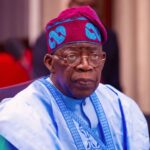In about 11 days, on February 25, to be precise, Nigerians of voting age will head to the polling booths to elect a new president, as well as members of the National Assembly. And in another two weeks, on March 11, they will repeat the same thing to elect governors and members of Houses of Assembly.
This is going to be a watershed and so no eligible voter should miss out on this important civic duty. It is a chance for all citizens to decide those who will occupy public office at the federal and state levels. It is important to note that our actions will have implications for the wellbeing of our country, states and even families, including those yet to be born.
Every eligible Nigerian armed with his Permanent Voter’s Card (PVC) should participate and elect candidates of their choice to fill these positions. This is the beauty of democracy: it gives us periodic chances to pass verdicts on our leaders.
For those satisfied with their current crop of leaders still on the ballot, it is an opportunity to return them to office. Those not satisfied equally have the chance to replace them. It is a duty we owe ourselves and our country.
NBBF to revive female basketball league after 2023 elections
Electronically generated evidence and 2023 election litigations
Voters should, however, know that only one winner will emerge for each position. So, winners should be magnanimous in victory, while others should go back to the drawing board and try another time. What is essential is to maintain the peace because no development can be achieved in the midst of violence.
Be law-abiding. Do not sell your votes and do not be intimidated. We should be free, in good conscience, to vote for candidates we believe have the best plans for our country and states. Know that your vote is your power, and the electoral umpire has a responsibility to make those votes count.
It is equally important to remind all voters of the provisions of the Electoral Act. Section 124 —(1) stipulates that: “Any person who knowingly votes or attempts to vote in a constituency in respect of which his or her name is not on the register of voters commits an offence and is liable on conviction to a maximum fine of N100,000 or imprisonment for a term of six months or both.
(2) “Any person who knowingly brings into a polling unit during an election a voter’s card issued to another person commits an offence and is liable on conviction to a fine of N100,000 or imprisonment for a term of six months or both.
Section 125: “Any person who at an election acts or incites others to act in a disorderly manner commits an offence and is liable on conviction to a maximum fine of N500,000 or imprisonment for a term of 12 months or both.
And 126 —(1) states that: “No person shall do any of the following acts or things in a polling unit or within a distance of 300 metres of a polling unit on the date on which an election is held — (a) canvass for votes (b) solicit for the vote of any voter (c) persuade any voter not to vote for any particular candidate (d) persuade any voter not to vote at the election (e) shout slogans concerning the election (f) be in possession of any offensive weapon or wear any dress or have any facial or other decoration which in any event is calculated to intimidate voters.”
It is important that the electorate respect these provisions. INEC has also released election guidelines, let’s follow them strictly.
We, at Daily Trust, are calling on all eligible voters to go out and vote. Participation in this year’s elections should be better than previous ones. In 1999, with a total of 57,938,945 registered voters, only 30,280,052 voted, which represents 52.3 per cent. In 2003, there were 60,823,022 registered voters, but only 42,018,735 people voted, representing 69.1 per cent. Also, in 2007, with 61,566,648 registered voters, only 35,419,262 voted in the elections, representing 57.47 per cent. In 2011, only 39,469,484 voted out of 73,528,040 registered voters, representing 53.7 per cent. The 2015 elections had 67,422,005 registered voters, but only 29,432,083 voted, representing 43.64 per cent. In 2019, out of 82,344,107 registered voters, only 28,614,190 voted, representing 35.66 per cent. This means over 50 million eligible Nigerian voters did not bother to participate in the exercise.
This year, there are 93,469,008 registered voters. We must not allow apathy to characterise this year’s exercise by going out to vote en masse during the elections. We must remember the words of the third president of the United States, Thomas Jefferson, who served from 1801 to 1809: “We do not have government by the majority. We have government by the majority who participate.”
So, those who refuse to vote are, by implication, enabling incompetent persons to assume leadership positions, and they cannot complain when things go against their expectations. As George Jean Nathan states: “Bad officials are elected by good citizens who don’t vote.”
Therefore, we must not subject our country and people to four years of bad leadership with our indifference. Nigerians, VOTE!

 Join Daily Trust WhatsApp Community For Quick Access To News and Happenings Around You.
Join Daily Trust WhatsApp Community For Quick Access To News and Happenings Around You.


